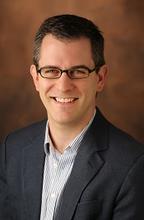“The Political Consequences of Criminal Violence: Applying MRP to Mexican Survey Data,” Noam Lupu, Vanderbilt University

AMERICAN & COMPARATIVE POLITICAL BEHAVIOR WORKSHOP
Abstract: How does exposure to violence shape political behavior? Specifically, what are the externalities of criminal violence on political participation? Answering this question convincingly has eluded scholars because official crime statistics are incomplete and individual reports of political participation are unreliable. We apply MRP to national surveys in Mexico to study the relationship between crime and turnout at the municipal level. We find that crime is associated with lower levels of electoral participation, as well as some evidence that this relationship is driven by perceptions of insecurity. We also use our unique data to extend and validate MRP methods.
Noam Lupu is Associate Professor of Political Science at Vanderbilt University and Associate Director of the Latin American Public Opinion Project (LAPOP). He studies comparative political behavior, political violence, inequality, and representation. He is the author of Party Brands in Crisis (Cambridge University Press, 2016) and coeditor of Campaigns and Voters in Developing Democracies (University of Michigan Press, 2019). His research has appeared in American Journal of Political Science, American Political Science Review, Comparative Political Studies, Journal of Politics, and World Politics, among other outlets.
The American & Comparative Political Behavior Workshop series is sponsored by the ISPS Center for the Study of American Politics and The Whitney and Betty MacMillan Center for International and Area Studies at Yale with support from the Edward J. and Dorothy Clarke Kempf Fund.